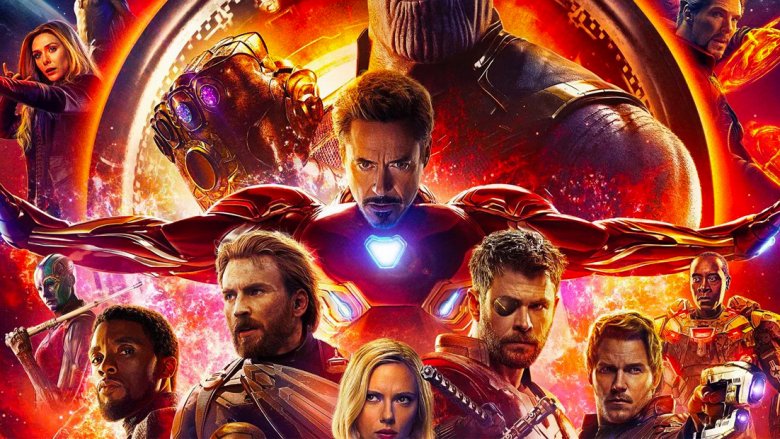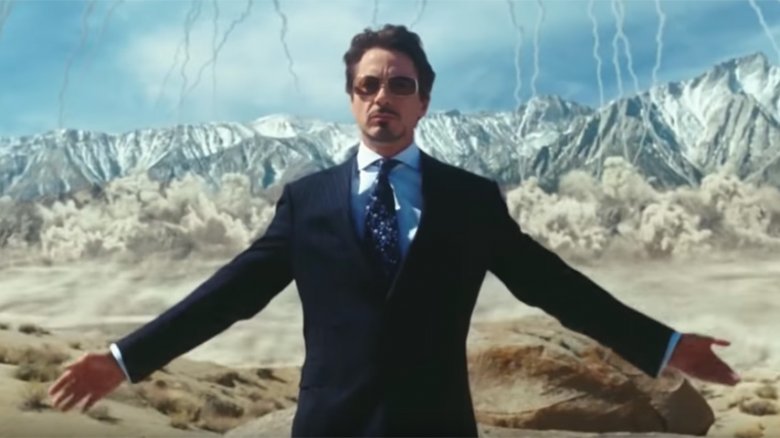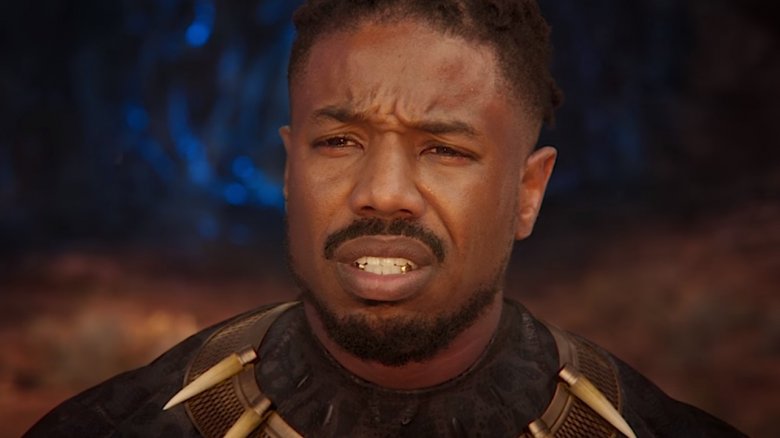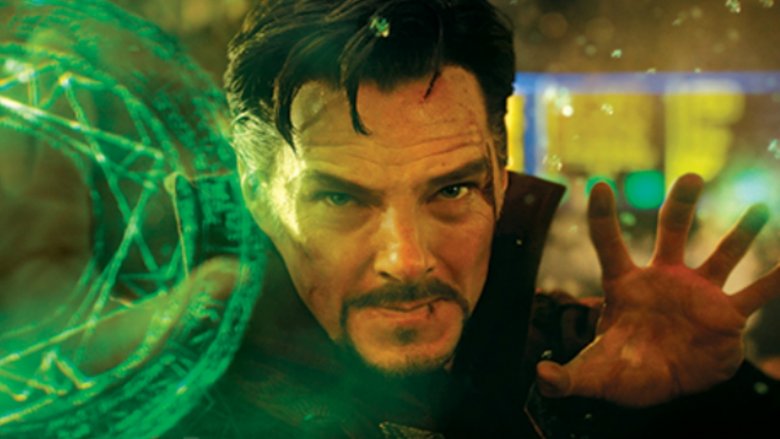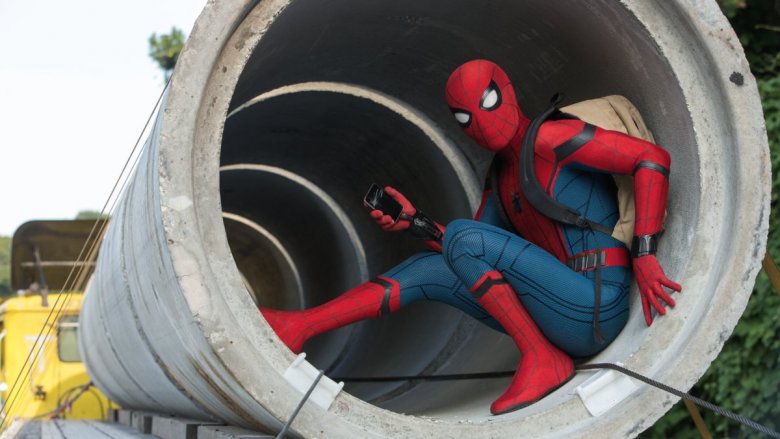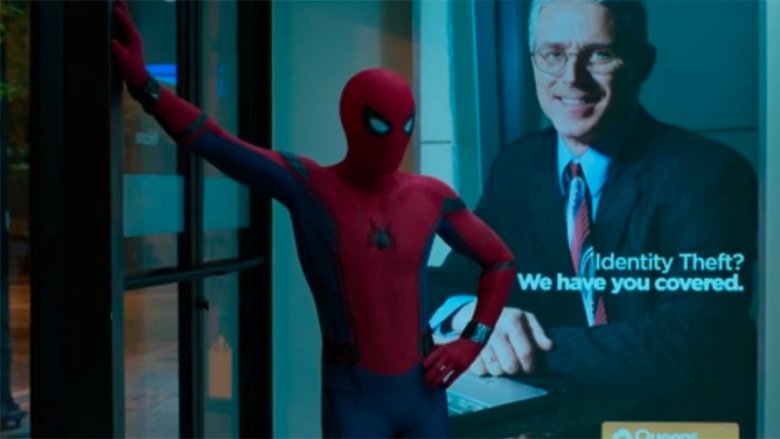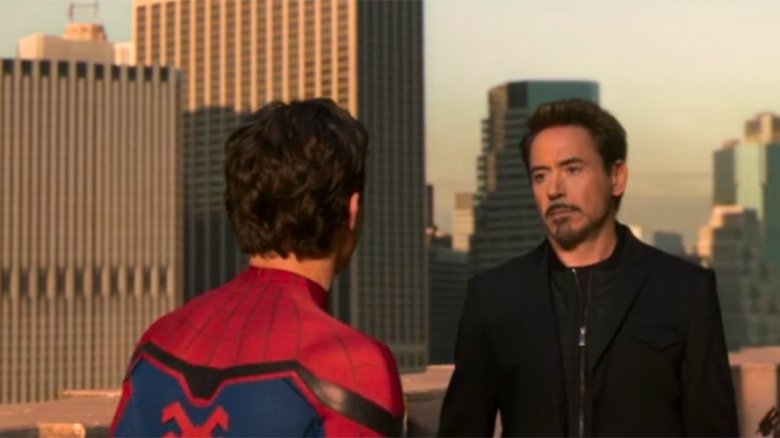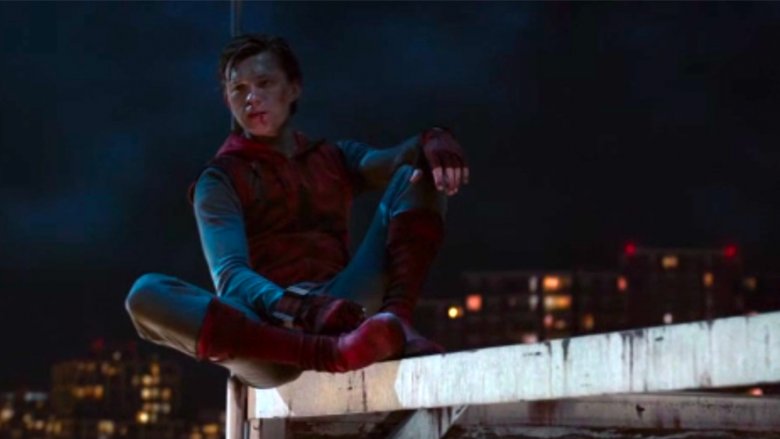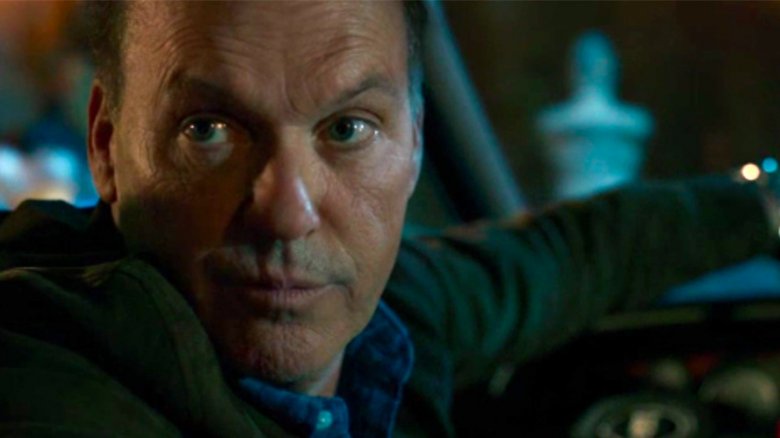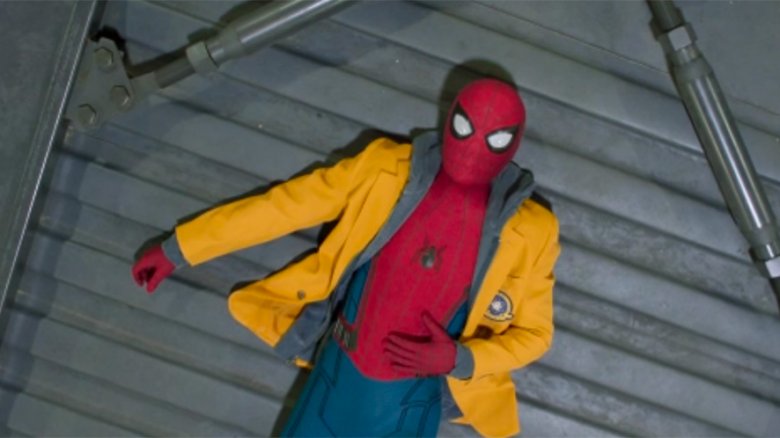The Best MCU Movie Is Not What You Think
Over the past 10 years, the Marvel Cinematic Universe has redefined the superhero movie, bringing a comic book-style shared universe to the big screen with a series of interlinked stories that are all building to the kind of crossover that fans had only ever seen on the page. With 20 movies already and more coming, however, there's also enough there to import another classic element of superhero comics: arguing about which one is the best.
Every entry into the MCU has its fans willing to argue in its favor — well, except Thor: The Dark World — and it's easy to see why. More than anything else, each entry into the MCU has brought its own new idea to the table, even if some of them work better than others. At the end of the day, though, there's only one that can be the best ... it just might not be the one you think.
Step one: Sticking to the formula
Before we go any further, it's worth noting that the vast majority of MCU movies are actually really well-done films. After decades of superhero movies existing in their own little bubbles, where the only piece of continuity we could hope for was Batman making an off-hand mention that Superman might also exist, seeing a fully formed superhero universe with dozens of heroes and recurring villains is mind-blowing. It also doesn't hurt that the casting is pretty perfect across the board, to the point where it's now almost impossible to imagine another actor taking over the roles of Steve Rogers, Tony Stark, or Black Widow.
But it also deserves mentioning that a lot of those movies succeed by sticking to a very specific formula. That in itself isn't a bad thing — the early Marvel Comics behind those movies are also pretty formulaic — but it's hard not to see a lot of those movies as being based around the premise of "Iron Man, but..." That makes sense. The first Iron Man film was a massive and pretty unexpected crossover hit. Trying to recreate that success is natural.
At the same time, it's led to a lot of movies that hit those same beats, where an overconfident hero's reach exceeds their grasp, only to create a problem that only he can solve. It's most obvious in films like Doctor Strange ("Iron Man, but with magic") or Ant-Man ("Iron Man, but the guy's a low-rent ex-con"), but when you go looking for them, you can see those elements cropping up all over the franchise. And it's especially noticeable when it comes to the villains.
The Good Guy, but bad
The one thing the MCU picked up on more than anything else from the Iron Man formula was that the hero fights a bad guy who's just like him, only evil. It happened with Iron Man and Obadiah Stane, the Ironmonger, in the first one, and it's been the go-to move for those films ever since.
The Ironmonger is basically an evil Iron Man. The Hulk fights Abomination, who is basically an evil Hulk. Ant-Man fights Yellowjacket, who is basically an evil Ant-Man. Black Panther fights Killmonger, who wears a nearly identical Black Panther costume that's mostly distinguished by color-coded force fields so we can tell who's winning the fight. Doctor Strange fights Kaecilius, an evil sorcerer, and then the movie sets up another evil sorcerer, Baron Mordo, for the sequel. Captain America: The Winter Soldier, a common pick for the single best entry in the entire franchise, is about Steve Rogers fighting an enemy super-soldier who is so much like him that in the comics, he took over the role of Captain America when Steve was temporarily dead. It's actually pretty surprising that there hasn't been a movie where Thor fights a bad guy with a magic Asgardian crowbar, especially since there's already one of those in the comics.
Again, that's not necessarily a bad thing, and it doesn't mean these aren't complicated and compelling characters. It's an easy way to give the heroes an appropriate challenge and highlight their ideological differences, and more often than not, it's led to some pretty exciting climactic fight scenes. The Ant-Man/Yellowjacket fight, for instance, blends action and comedy to great effect, and the final battle of Black Panther is both well-constructed and thrilling.
Step two: Breaking the formula
While the formula can provide the framework, the most interesting things in the MCU movies usually come from the way the films break away from it rather than just doing the same thing very well. It's those expectation-smashing moments that really show where those movies shine.
To stick with the examples we're already using, it's why the best part of Doctor Strange is when it stops being a movie about (admittedly very visually interesting) wizard battles and starts being about Doctor Strange trapping a giant demon with its head on fire in a time loop where he dies over and over until it finally agrees to bargain. Ant-Man shines in its charmingly goofy supporting cast and size-changing adventure, rather than through training sequences and technology. In Black Panther, T'Challa is a brilliant, fabulously wealthy technologist, but he's a fascinating character because he and Wakanda are presented as being as far as possible from Tony Stark's world of smarmy quips and tailored T-shirts.
It makes sense, then, that the best MCU movie would be the one that acknowledges the formula and also rejects it. It would be the one that recontextualizes everything that came before it and changed everything that came after. It would be the one that felt the most different while still telling a story about superheroes and why they work. In other words, the best MCU movie would be...
Spider-Man: Homecoming
Spider-Man: Homecoming hit theaters smack in the middle of a crop of movies that were among some of the best entries in the franchise so far. Captain America: Civil War, which introduced Spider-Man to the MCU, did the classic hero-vs-hero fight in a way that made sense and felt true to both characters. Thor: Ragnarok leaned into comedy and wound up being one of the funniest movies of the year, with neon-soaked action and stakes that felt suitably mythic. Black Panther was arguably one of the most important superhero movies of all time, with another one of those note-perfect casts, jaw-dropping visuals, and a beautifully crafted story. Infinity War felt more like a comic book crossover than anything before it, with interweaving storylines that built on each other to create massive stakes. Each one of those — and others — have a claim on being the best, and in all honesty, each one does at least one thing better than Homecoming did.
The only thing is, Homecoming does quite a few things they don't.
Also, to be fair, it's a film that had some advantages, particularly in that Spider-Man arrived as a known quantity. Before he ever flipped into action in Civil War, Peter Parker had starred in five hit movies, a seemingly endless string of cartoons, a Broadway musical, a concept album about the death of Gwen Stacy, a theme park ride — you get the idea. He's the flagship character at Marvel Comics and the guy who used to be in the logo on their paychecks, and when a movie is working with someone who has that much pop culture cachet, it can afford to take risks that other films can't. You don't really need to worry about people getting on board with Spider-Man in the same way you do with Ant-Man.
It's not an origin story
First and foremost, it allows you to skip over the thing everyone already knows. Pound for pound, most of Marvel's films have been origin stories, whether you're seeing Iron Man build his armor in a cave, Black Panther fight against M'Baku for control of Wakanda, or watching the Avengers or the Guardians of the Galaxy get together for the first time. Spider-Man, however, is different.
We've seen Uncle Ben die enough times and heard about power and responsibility so often that we don't really need to have them around anymore for a while. Instead, Spider-Man arrives in the MCU as a fully formed character without wasting time by showing us all the radioactive spiders and unchecked burglars we've seen before. With just a few words about wanting to make up for a mistake in the past, Civil War's introduction of Peter Parker nails the essential core of why he does what he does, and that's all we really need. Plus, the line in the big fight scene where we find out that Tony Stark talked him into fighting Captain America by telling him that Cap is wrong but thinks he's doing the right thing? That's the perfect thing to tell Peter Parker if you want him on your side.
A lot of that comes from Spider-Man's presence in pop culture, but there's another good chunk of it that comes from the way the MCU has evolved since it started. Iron Man was essentially set in a realistic world with one big difference that allowed for someone to fly around in armor shooting lasers out of his hands. By the time we get to Homecoming, we've seen a world with super-soldiers and Hulks, with alien invasions led by mythical gods. When that's the larger world, you don't need to explain the radioactive spider. You get to move right into the story.
Step three: Rejecting the formula
Because Spider-Man arrives fully formed and because he exists in a world that's already been shaped by 15 previous superhero movies, he can do the one thing no other character does: reject the established formula.
That's not to say that every hero to be featured in the MCU before that movie was stamped with a Robert Downey Jr.-shaped cookie cutter. Captain America alone is a vastly different character, and lest we forget, one of those 15 movies was about a talking raccoon and a sentient tree having space adventures. With Homecoming, though, it's Peter's interactions with Tony Stark that change the tone, and allow us to see how dramatically different they are.
What really makes it work is that in the MCU, Tony Stark is clearly Peter Parker's hero. It makes perfect sense in a world where he's the modern era's first publicly known superhero and also a rock-star super-scientist, things that would appeal to both halves of his personality. And yet, the movie builds step by step to a story that culminates in Peter fully rejecting the choice Tony would've made — the choice Tony actually did make when he famously announced his secret identity at the end of the first Iron Man film.
A movie in a superhero universe
In every respect, this is a movie that's made for the world Iron Man created. It opens with a flashback to the aftermath of Avengers and a clear statement about how those superheroes — based out of Tony Stark's tower in Manhattan — have changed the world into something it's never been before, and then takes us into the present day of a world that exists as the logical consequence of all these superhero epics.
It's a world full of ARC reactors and mysterious Chitauri technology, and if there's any doubt that this is a world shaped primarily by Tony Stark, consider the fact that from a visual standpoint, the Spider-Man costume that we recognize, the one that looks the most like his comic book counterpart, is the one that's literally made by Stark and given to him, complete with all the locked features that only Tony can control. You know, just like he wanted to control his technology in Iron Man 2, or the Ultron program in Age of Ultron, or the superhero community in Civil War.
And when that suit is taken away from Peter, the film explicitly highlights the differences between the two characters and how they work on a personal level. Before he was Iron Man — and, honestly, for quite some time after — Tony Stark was a self-absorbed arms dealer with that signature hubris that shaped so many other heroes. His first act after he gets home from the cave where he built his Iron Man suit to escape from his captors is to build a better one and go back for revenge. Peter Parker, on the other hand, was a hero before he got the suit, and he steps up to continue his heroism once he loses it. His first acts after his defining tragedy, which we know from that brief scene in Civil War, is to put on this janky homemade costume and try to help people. And he does it all without ever fighting his own evil opposite.
It's not an evil twin story
The choice of the Vulture as the villain for Homecoming (along with a crew that includes the Tinkerer, the Scorpion, and two Shockers) is an interesting one even without the context of the Marvel Cinematic Universe. He's one of Spidey's oldest foes and a founding member of the Sinister Six, but he's never really been one of the top-tier Spider-foes that you'd expect to carry a movie. With the context of the MCU, however? He's remarkable, if only because he's the furthest thing from "the good guy, but bad" that you can get with Spider-Man.
The two characters do share a couple interesting similarities — they both have "plots" built around unauthorized use of Tony Stark's technology, for instance. More than that, though, they're ideological opposites, which is especially interesting when you consider that the one hero that the Vulture seems like a counterpart for is Tony Stark himself. He's an arms dealer, a technologist, someone who builds a flying suit of armor to escape from what he sees as a bad situation. He's the person who talks about himself as a man of the people while he's driving around in a Bentley with a beautiful house in New York City. He's the one who's willing to leave his enemies to die. Spider-Man's fight against him isn't just a fight against a bad guy, it's a fight against the dark side of who Tony Stark is and what he represents.
That's what makes Homecoming so much more interesting than a movie where Spider-Man just fights a bad guy version of himself. That might've come about as a thankful necessity with Sony making their own movie about Spidey's occasionally evil doppelganger, Venom — which, spoiler warning, ends with Venom fighting an evil version of himself and then sets up a sequel where he'll fight an even more evil version of himself — but it worked. Like all the best Spider-Man stories, it's a battle of ideas, and it shows us that the idea of Spider-Man is stronger than self-interest and greed.
The best of the MCU
Of all the films in the MCU, Spider-Man: Homecoming does the most with the idea of a superhero universe. In that respect, its closest competition is Infinity War — which itself is a movie that goes back to these ideas by having Peter Parker dissolve to dust in Tony Stark's arms as a direct consequence of Tony's failures — but it's about more than just playing with the toys. It's about creating the world around them as a world of ideas that just don't work if you remove them from context. It's a movie that doesn't explain who Iron Man is for the same reason it doesn't show us Spidey's origin: because it doesn't need to.
It's a superhero movie that can only exist in the context of a larger world of superhero movies, but it never stops being a compelling story in its own right that's true to its characters. It's about everything that a Spider-Man story should be about: heroism in all its forms, a character who has to choose to lose something to win a more important victory. It's about lifting the heavy thing not because you can, but because you have to. It's about power and responsibility without ever actually using those words, because the meaning is more important than the phrase. That's what makes it the best film in the MCU.
Or maybe the best one really is Winter Soldier. Or Black Panther. Or Thor: Ragnarok. Or maybe it's Infinity War. There's an argument out there in favor of all of these movies, but very few of them are as compelling as the case that Homecoming presents on the screen.
